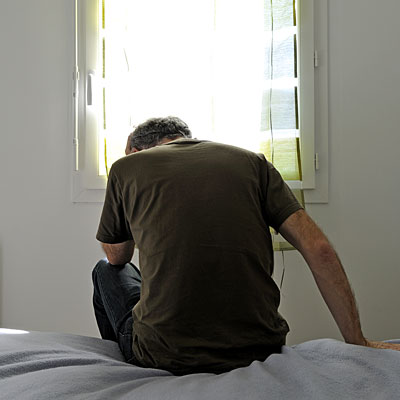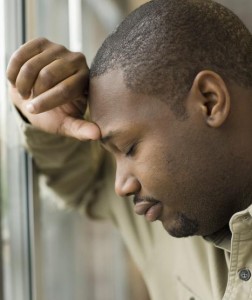Male depression is becoming more and more common in our society. There are a number of factors that may be contributin g to male depression, some more than others but, the weight of the evidence shows it’s on the increase. The poor economy, a decade of wars, drugs and the changing roles of men and women are all possible contributors to the rise. Recognizing male depression symptoms as early as possible is essential to the discovery and reversal of depression in men.
g to male depression, some more than others but, the weight of the evidence shows it’s on the increase. The poor economy, a decade of wars, drugs and the changing roles of men and women are all possible contributors to the rise. Recognizing male depression symptoms as early as possible is essential to the discovery and reversal of depression in men.
Determining the Signals
Signs of male depression begin with changes in behavior or personality. A switch in personality is an easily-recognizable male depression symptom. Someone once social and outgoing who begins avoiding parties, meetings, church activities or club meetings is a candidate for depression. Those closest to him should be alerted by an altered personality. Other male depression symptoms can include:
-
Loss of concentration
-
Lack of motivation
-
Loss of sleep or oversleeping
-
Irritability
-
Unexplained weight loss
-
Heightened sensitivity to critical remarks
-
Change in sense of humor
-
Loss of libido
-
Voluntary isolation
-
Misuse or increased use of prescription medication
-
Violent speech or actions
-
Fatigue
Getting Past the Denial
Men don’t generally experience all these male symptoms of depression but any three or four lasting more than a short few weeks should cause family members or fellow workers to take notice. One certain sign when confronted with such behavior is denial. Male depression symptoms that continue will only grow worse. As they progress, so will the depth of the denial. Men will blame others for such behavior, pointing the finger at circumstances or the situation of the moment. They don’t see that their attitudes or behavior continue long past one or two single incidents.
Counseling will establish a connection with the male, get to the root problem and establish a way back to normal, balanced behavior. Getting an admission from the male that help is needed is the hurdle that the man’s loved ones have to clear. Confrontation will only deepen the resistance. A loving approach, excluding criticism and belittling is the best approach. Recognition of the symptoms is the first step. Be alert to behavioral or personality changes. Once determined, the male should be encouraged to seek counseling to determine the problem or eliminate the belief that there is a problem. Dealing with the male defense syndrome early means all the difference.
*The information provided in this article is for informational purposes only. Never substitute, disregard, or delay seeking professional medical advice and assistance for any health or mental issue(s) you have or are concerned about because of something you have read.